Real estate sales have plunged by more than 20 percent across major cities in China, despite Beijing’s efforts to shore up its struggling housing market.
Authorities have tried rolling out stimulus policies, such as tax breaks for new home buyers and lower mortgage rates but the overall performance of the real estate market remains poor after the Oct. 1 holiday week, which traditionally is a peak time for real estate sales.
Analysts point out that the sharp decline resembles Japan’s real estate bubble in the 1980s. Influenced by multiple facts, such as the pandemic and an aging population, China can hardly rely on economic growth or fiscal policies to overcome the housing market crisis, they say.
Average daily transactions of new commercial residential units in China’s four largest cities plunged during the holiday week. Compared to the same period in 2021, sales were down 21 percent in Guangzhou, 47 percent in Shanghai, 49 percent in Shenzhen, and 64 percent in Beijing.
On Sept. 30, the Chinese Ministry of Finance and the State Administration of Taxation issued a policy. Effective from Oct. 1, till Dec. 31, 2023, taxpayers who sell their owner-occupied home and purchase another owner-occupied home within one year of the sale, will be eligible to receive a tax refund.
On the same day, China’s Central Bank announced its first mortgage interest rate cut in seven years—a 0.15 percentage point reduction for first-time home buyers, starting Oct. 1.
State-run media CNA reported on Oct. 1 that industry insiders are confident that such heavyweight policies will stimulate sales during the traditional peak season and even into the fourth quarter.
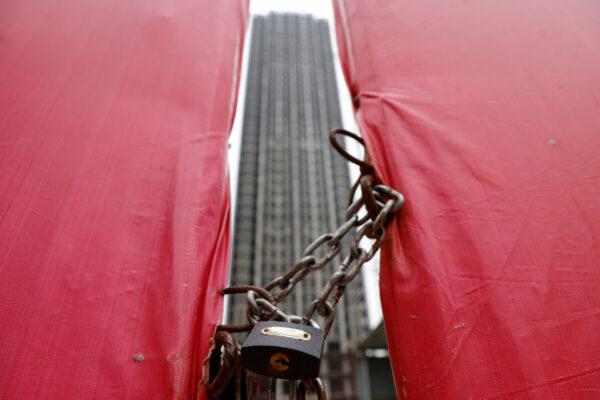
However, according to data released by Beijing China Index Academy on Oct. 8, the Chinese real estate market still has not recovered from the pandemic.
Economic Crisis
On Oct. 5, BBC Chinese reported that China may not be struggling with sharp inflation like the United States and the U.K., but it has other significant challenges.Being the world’s factory, China is suddenly finding fewer buyers for its products, both domestically and internationally. Strained trade relations between China and major economies, like the United States, have also hampered its growth.
In addition, the Chinese currency has plunged against the U.S. dollar and is at its lowest level in decades. The weak currency has caused panic among investors, exacerbated uncertainty in financial markets, and made it difficult for China’s Central Bank to inject money into the economy.
The BBC Chinese report listed the five main reasons why China’s economy is in trouble on the eve of its 20th National Congress: the zero-COVID policy, the government not responding well to the weak economy, a real estate market crisis, an energy crisis, and China’s tech giants losing investors.
The weak real estate market is a serious blow to the economy, according to the article, as real estate and its associated industries account for as much as one-third of China’s GDP.
“When confidence in the housing market is low, it results in a sense of uncertainty about the overall economic situation,” according to Louis Kuijs, S&P’s chief Asia economist.
Chinese homebuyers are starting to refuse to make payments on mortgages of their unfinished homes, and some are wondering if their homes will ever be completed.
Demand for new properties has fallen significantly, reducing demand for related building materials.
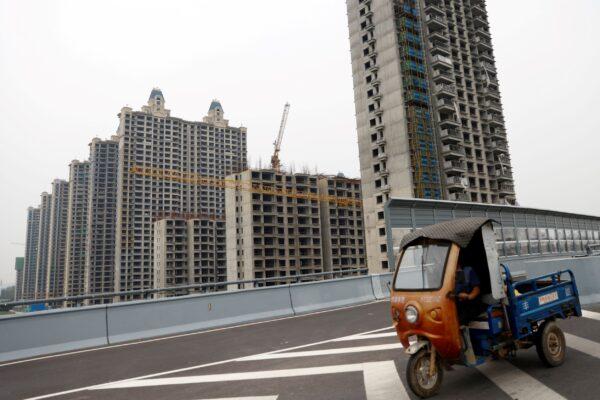
Underlying Issues
Deng Yuwen, a Chinese journalist and writer living in the United States, analyzed the underlying issues behind China’s weak real estate market in an article published in the Deutsche Welle on Oct. 8.Deng said, the future of the Chinese economy looks pessimistic, at least in the short to medium term, which makes people cautious about spending on commodities, especially high-end real estate.
The U.S.-China trade war has created a tougher environment for China’s economic development, both internally and externally, due to the United States blocking and decoupling key supply chains and high technology to China. On top of that, the CCP’s zero-COVID policy and the global geopolitical impact of the Russia-Ukraine war further exacerbated the economic situation.
Furthermore, real estate prices in China are too high in relation to people’s incomes, and although housing prices have fallen relative to the peak, they are still very high overall, Deng said. With people’s incomes declining and many facing unemployment, the vast majority cannot afford to invest in real estate.
Also, China’s demographic structure has undergone drastic changes. The declining birth rate and a decreasing population are important factors affecting investment in the long term. Its consequences for real estate are now being realized, he said.
Deng pointed out that the current demand for real estate in China comes mainly from the millennials. However, many of the parents of this group already own two or more properties. Therefore, not many millennials are currently willing to buy new properties unless it’s a significant improvement from living in one of their parents’ properties. Unless there is a further decline in real estate prices, the probability of the millennial group investing in real estate on a large scale is quite low, and the situation will become more prominent as the birth rate further decreases and the elderly population grows.
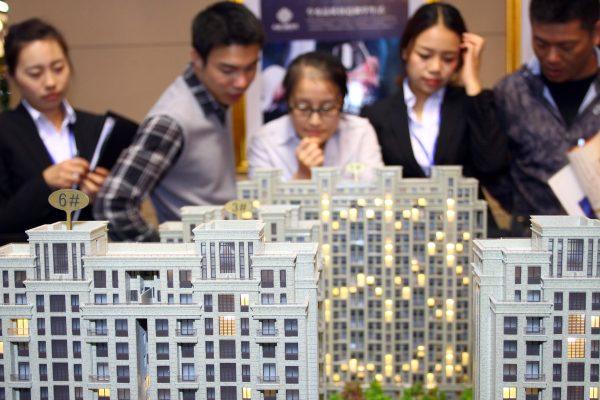
Crisis Mirrors Japan’s ‘Lost Decades’
Alicia Garcia Herrero, the chief economist for Asia Pacific at Natixis, said in a Sept. 30 article in Nikkei Asia Weekly that China’s real estate depression is entering its second year. She said the financial problems of the Evergrande Group have led to speculations that China will also have a “Lehman moment,” referring to the bankruptcy of Lehman Brothers, which led to the 2008 subprime mortgage crisis.But China’s real estate problems are not the same as the U.S. subprime mortgage crisis. Instead, it is more similar to the macroeconomic imbalance experienced by Japan in the 1980s and 1990s, also known as the “lost decades” of Japan’s economic stagnation.
According to Herrero’s analysis, Chinese families’ excessive real estate ownership, limited investment options, and constrained consumer demand due to capital controls, led to an overproduction of housing outside of major cities.
The Japanese real estate bubble in the past was set against a backdrop of aggressive financial deregulation, loose monetary policy, and domestic investors’ preference for the real estate market. When the Japanese real estate bubble burst, regulators were overly patient with domestic banks, further exacerbating the problem. As banks became too conservative in taking on new risks, credit growth stagnated, and the failure to take drastic steps to address deteriorating balance sheets further fueled the crisis.
The underlying causes of the housing crisis in both countries were similar, including macroeconomic imbalances and excessive financial liberalization that allowed real estate developers to rely on the shadow banking sector to raise capital with less scrutiny than banks and other regulated lenders, according to Herrero.
The main difference between the two cases is that China has maintained a much higher economic growth rate than Japan, allowing more room for error.
However, China’s continued draconian measures to control COVID-19, coupled with an aging population and declining asset returns, point to slower economic growth going forward, Herrero said. The slowdown and weak fiscal position make it difficult for China to solve its real estate problems as Japan has done since the costs are bound to increase over time.
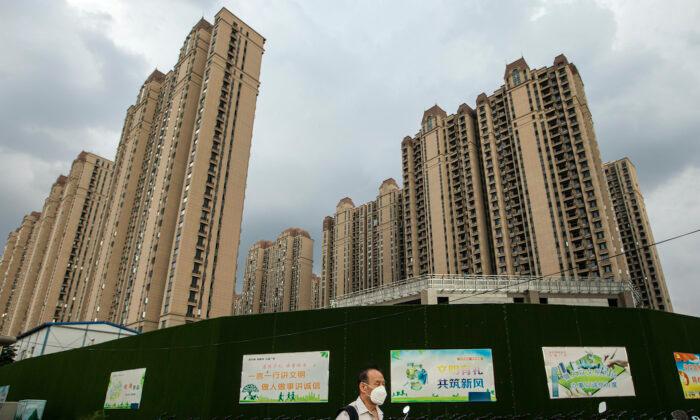
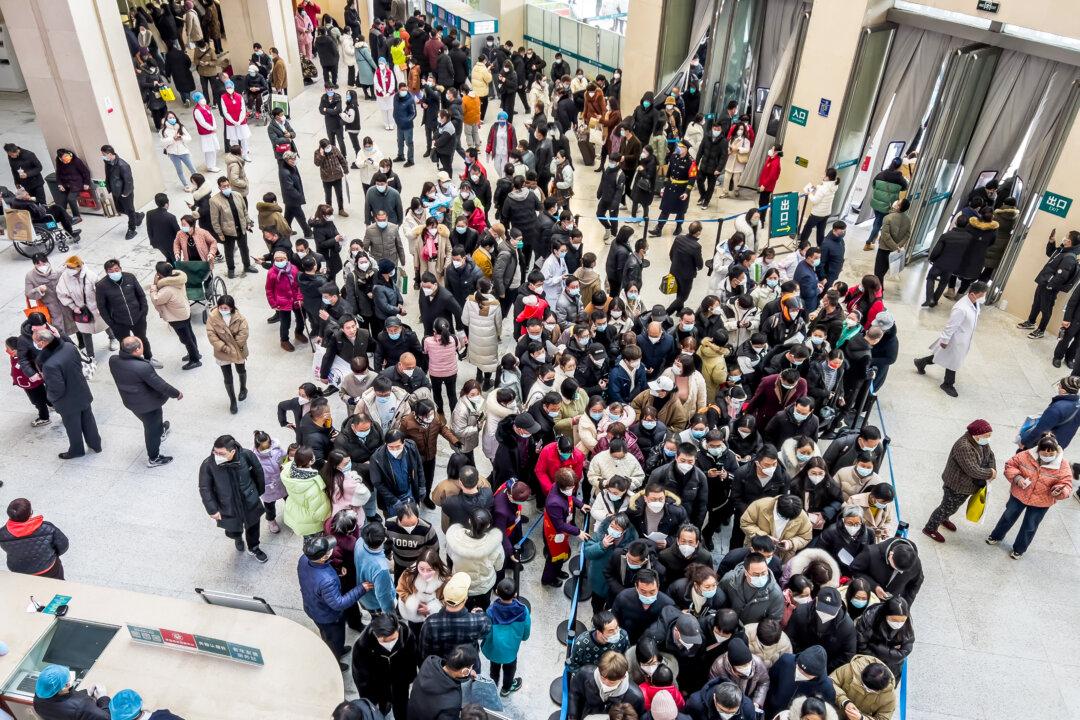

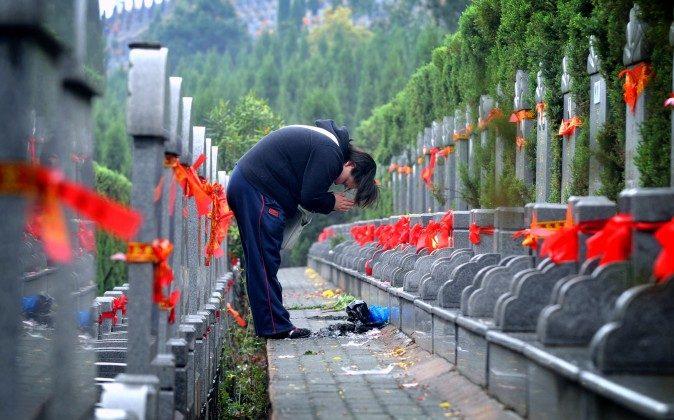
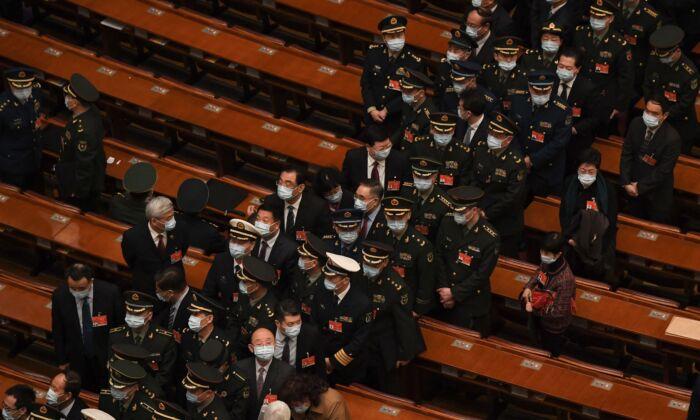
Friends Read Free